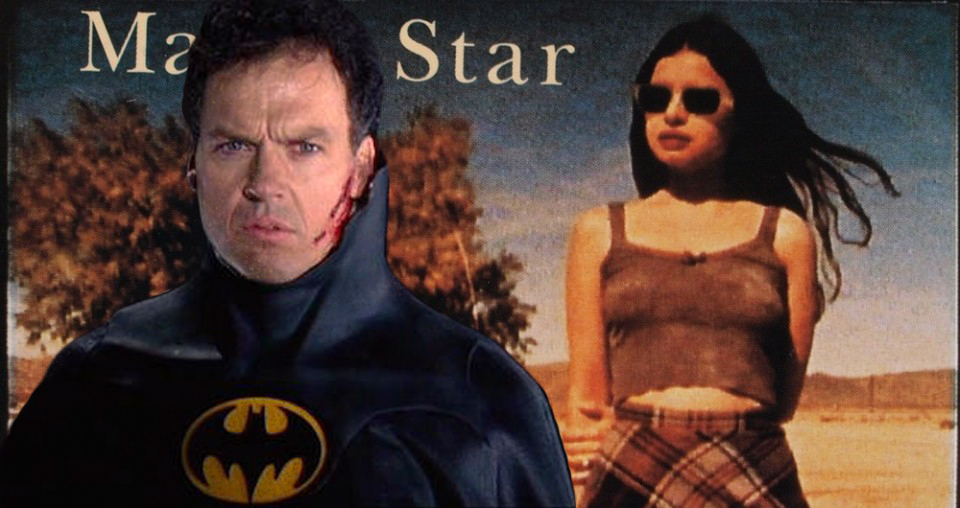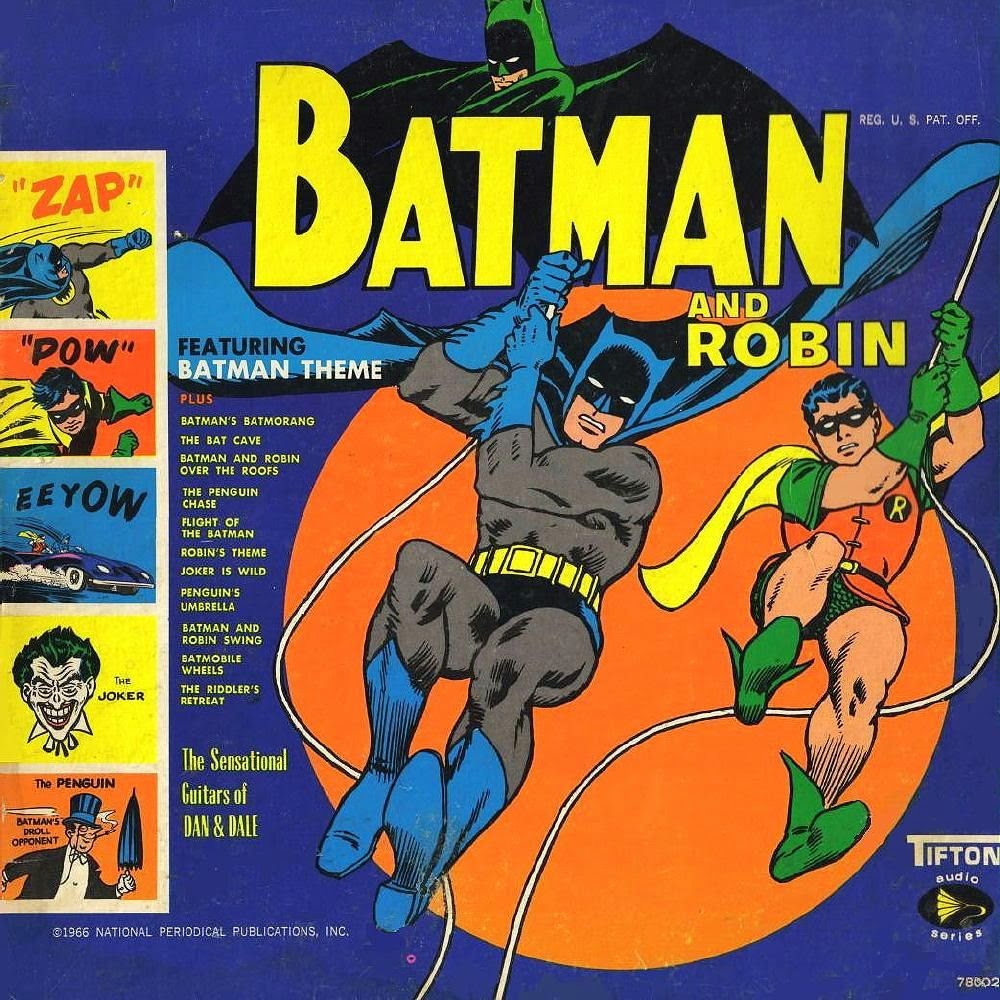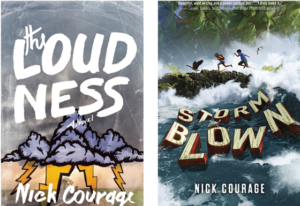I love a good adaptation. Some people fight them tooth and nail, but I welcome them. I find it intriguing to see how one person's work can inspire another, how we can view a single piece of art (of any kind!) in countless different ways. Books, film/TV, and video games are the most common adaptations these days, but the power of good characters and good stories can bridge even bigger gaps. For example, comic books to music. And I don't mean musicals. I mean instrumental only; I mean Batman to jazz.
Yeah, your brow may have just furrowed. I know mine did when I first heard of this. It's not something I ever would've considered when thinking of adaptations, but it's a real thing:
Sun Ra and The Blues Project Do Batman and Robin (MP3s)
In 1966, a toy company in Newark, New Jersey released a children's record called Batman and Robin to cash in on the popular Adam West TV series of the same name. The music on the LP was credited to "The Sensational Guitars of Dan and Dale," but in fact, the band was one of the greatest uncredited session combos of all time, including the core of Sun Ra's Arkestra and Al Kooper's Blues Project. To keep the music licensing fees to a minimum, all the tracks were based on public domain items like Chopin's Polonaise Op. 53, the horn theme from Tchaikovsky's Fifth Symphony and the love theme from Romeo and Juliet, and generic rock riffs. It's all instrumental, with the exception of Robin's Theme (MP3), featuring an uncredited vocalist who I hope some reader will be able [to] identify.
On initially learning of this, it made no sense to me, but the more I thought about it, the more genius it became. So much about storytelling is about tone, subtle emotion, and how the story makes the audience feel. Music is the same way, every creative medium is, really. It can express melancholy, urgency, joy, fear. The essence of a character and his or her journey can be expressed in the way the notes land and combine and morph. Music is meant to touch the listener, to manipulate our emotions (not in a bad way), just like words on a page do.
My former colleague and friend, Nick Courage, discussed his experience with this particular Batman adaptation in his May 5, 2015 article, "Mazzy Star Batman," in The Paris Review, a piece I had never known existed until recently:
My friend Amy and I moved to New York at about the same time, for the same reason: to pursue careers and then to decide we didn’t like ourselves in those careers. It was fine, when we arrived, to tread water for a bit—fun, even, in the way that living off peanut butter can be when creative success feels inevitable. After a couple of years, though, my excitement at living in the city started to curdle. I’d lost my master’s diploma somewhere between Boston and Brooklyn, but had somehow failed to shake my credit cards and student loans. So—terrified, with no real prospect of making a living as an artist—I watched my day job in publishing turn into my life.
It was a few months after the drudgery of fiscal responsibility kicked in that Amy introduced me to the joys of weekly comics. She’d set up a pull list at Midtown Comics, a twenty-dollar-a-week subscription that gave her something to be excited about on Wednesdays. Before she lent me her copies of the Batgirl reboot, I didn’t totally get it. Having read only occasional comics from the supermarkets of my childhood, I had never experienced a full narrative arc. I assumed that, like McDonald’s Monopoly™, there would always be a piece missing—what I might have jokingly called an objet petit a before my resentment of graduate school took over.
That changed after I set up my own pull list, taking the R train up to Times Square on my lunch hours and sneaking back into the Flatiron building with issues of Swamp Thing and Hellblazer tucked under my arms in opaque black plastic bags, like top-shelf Hustlers. It started off as simple transgression: the thrill of spending time with back issues of Savage Wolverine instead of the novels I should have been reading, both for work and as a “good literary citizen.” Before long, though, I developed favorite artists and writers—even letterers. After having lost my love of literature to the daily grind, it felt like a homecoming, to be excited to read again. All it took was two-page spreads of Morlocks tunneling through the bowels of Manhattan. “Good” was boring, I decided, arranging the books on my desk so I wouldn’t have to face their author photos. Better to be a delinquent with adamantium claws.
Obsession comes naturally to me. I blew my weekly budget at the comic-book store and then discovered the stacks at the library, refreshed occasionally by the efforts of someone a few steps ahead of me with interlibrary loan. My invisible mentor. Not having a gauge for the genre, I borrowed a backpack full of comics every Saturday without much thought or deliberation. Most were missteps, problematic older pulps in yellowed trade editions. Some had their more lurid panels torn out, and I imagined my library twin carefully taping these into a loose-leaf notebook.
Much as the “World’s Greatest Detective” (Batman) might have, I considered tracking him down—scanning names on the library’s hold shelf and covertly flipping through his selections before and after he’d borrowed them, checking for holes. Around this time, though, the interlibrary loans dried up; my mentor/Moriarty and I had read almost every trade in circulation.
Luckily, between us, Amy and I had the new releases covered. I’d meet at her apartment every few weeks and trade stacks—binge reading the latest Locke & Key while listening to Minor Threat. It was at one of these hangouts that she told me she and her husband were having a baby. There was no record scratch. We were both in our thirties and I was used to my friends growing up around me. Inspired, I diverted my energy into scouring New York’s record stores for the superhero LPs of my youth: narrated gatefolds with comics attached, so early readers could follow along. In the one I remember most vividly, Spider-Man recovers a stolen El Greco from a little-known villain named the Conquistador—if not the perfect gift for any expectant mother, the perfect gift for Amy.
My plan was to surprise her with a crate of these. But after months of searching, I only found one that came close.
Sun Ra’s pseudonymous 1966 Batman and Robin album.
My objet petit a.
Sun Ra’s Batman wasn’t the record I wanted—like, I assume, every unsuspecting listener before me, I was disappointed when I finally dropped the needle. It was textbook bait-and-switch: even the heroes on the cover, swinging into action in classic Golden Age style, seem unaware of the famously avant-garde jazzman lurking within their sleeve.
Attributed to the Sensational Guitars of Dan and Dale—described by WFMU as “one of the greatest uncredited session combos of all time”—the record is an overt cash-in on sixties-era Batmania. My copy was previously owned by an improbably named child (Bart) who scrawled his name in green crayon across Robin’s legs. Bart had seemingly listened to the record only once, and I doubted he’d gotten all the way through. We had both been expecting the old na-na-na-na, the Adam West theme song. Past that, I’d had high hopes for “The Penguin Chase” and “Batman’s Batmorang,” which—with the benefit of hindsight—should have tipped me off (as Batfans know, they’re called batarangs).
Instead, Bart and I got two sides of funked-up public-domain pastiche. Musically, the only signals that Sun Ra even knew how this record was going to be packaged are in “Batman’s Theme” and “Robin’s Theme,” the two vocal tracks on an otherwise instrumental half-hour jam. While thematically relevant, these lyrics, belted out con brio, really underline Dan and Dale’s lack of familiarity with the source material. If you’d like to sing along, the words are (respectively): “Batman / Batman / Batman” and “I said, Robin / Robin, yeah!”
It’s classic swing, the ideal album for a smoky bar or—I imagine—an awkward, LBJ-era key party. It’s Bruce Wayne as Don Draper, and I don’t blame Bart for rejecting its bad-dad charms.
Still, if you’re able to accept the Sun Ra Batman at face value—not the record itself, but the impossible Bruce Wayne who lives within the imagined Gotham of its grooves—he’s arguably the most compelling iteration in the franchise. Released from the endless cycle of vigilantism that typically defines him, Sun Ra’s Batman becomes unpredictable. He orders a third drink, then laughs—forgetting, for one happy moment, the constellation of emotional and physical pain that landed him this bit role in what looks to be an Antonioni film. He lays his head on the bar for one long second, then another. Just when you think he’s not getting up, he stumbles toward the jukebox, bar stool clattering to the floor in his wake.
The conflict inherent in this inaction—accompanied, perhaps, by “The Riddler’s Retreat” (a sax-heavy riff on the Beatles’ “She Loves You”)—is more interesting to me than any evil plot to overtake Gotham, which, let’s be honest, never have much of a chance anyway. Here, for once, is tension without obvious resolution: What could Batman possibly be doing here?
After nearly a decade in the city, I wondered the same thing about myself all the time. I’d stopped going out: most of my friends were busy buying houses or party drugs, and I couldn’t keep up with either. Instead, I settled into a forgettable routine of going to work and coming home, where I sat with my wife in an overpriced one-bedroom apartment, surrounded by dog-eared library comics, listening—increasingly—to the Sensational Guitars of Dan and Dale.
Freed from the tyranny of comic-book canon through the beneficence of Sun Ra, I started projecting Batman into mash-ups that more directly reflected my own mostly plotless narratives, trying to conjure a role model if not a revelation. Scrolling through sales reports at work, I imagined Mumblecore Batman misquoting lines from art-house films, “nostalgic for yesterday.” Before Sunrise Batman drifted with Julie Delpy through my old neighborhood as I walked to the subway, expressing hopes and fears so nakedly it made me cringe. Mazzy Star Batman tried to shake a lingering sense of pointlessness as midafternoon light refracted through jam jars of ten-dollar wine.
 This last Batman—peering confidently through existential haze, or possibly a lingering cloud of Nag Champa incense—was the one I most identified with. He was vulnerable, sure, but he was also Batman, so you knew he’d pull through. Unable to stop thinking about him, I photoshopped a picture of Michael Keaton into one of the band’s sepia-toned publicity shots and stared at it, listening to So Tonight That I Might See—their hauntingly fragile breakthrough album—on loop.
This last Batman—peering confidently through existential haze, or possibly a lingering cloud of Nag Champa incense—was the one I most identified with. He was vulnerable, sure, but he was also Batman, so you knew he’d pull through. Unable to stop thinking about him, I photoshopped a picture of Michael Keaton into one of the band’s sepia-toned publicity shots and stared at it, listening to So Tonight That I Might See—their hauntingly fragile breakthrough album—on loop.
“Does it have to be Mazzy Star,” my friend Justin asked, after I thought I’d sold him on the idea, “because they’re on the Batman Forever soundtrack?”
I hadn’t known, at least not consciously. We—minus Amy, who was at home with her newborn—were a handful of beers in by this point, and the universe shifted briefly into focus as Justin explained that the Forever soundtrack featured mostly songs that weren’t actually in the movie. Mazzy Star’s “Tell Me Now” was, appropriately, one of them: a shadow sound track, an anthem for a Batman that didn’t quite exist. I went home and looked up “Tell Me Now.” It’s a fine song, but I preferred to think of Bruce Wayne striding purposefully—in my worn-out peacoat, from his lunch hour at the record store to the nine-to-five he doesn’t really need—with the refrain from their more popular “Fade Into You” swelling through my tangled earbuds.
The idea of Mazzy Star Batman sustained me for a little over a year after that night, during which time I wrote a novel about, sure enough, an unlikely hero who doesn’t feel like he’s in control of his life. Soon after, I moved away from New York.
Nick Courage’s middle-grade novel[s], The Loudness [and Storm Blown are] out now.
See the original post HERE
Intriguing, no?
What literary character or story would you want to hear as a music (not musical) adaptation?


